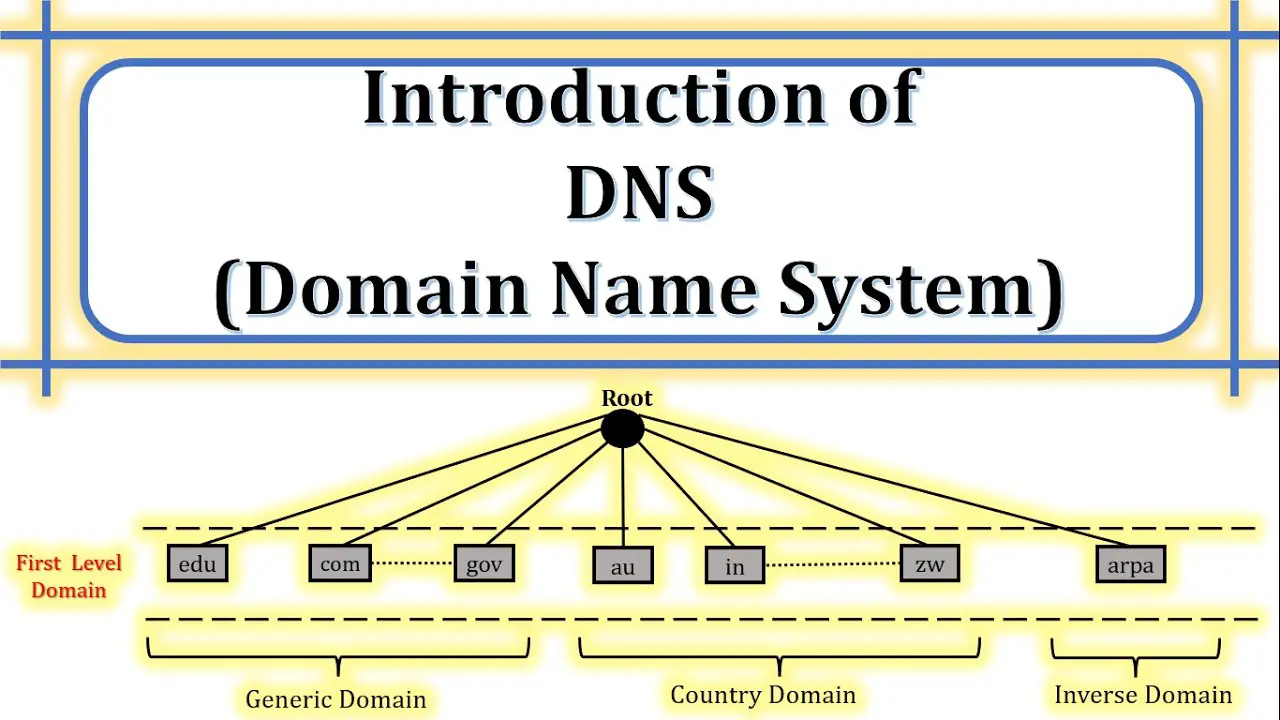Advantages of Gaming
In recent years, the world of gaming has undergone a remarkable transformation. What was once a niche pastime has now evolved into a global phenomenon, captivating millions of players across the globe. While gaming has often been criticized for its perceived negative impact on individuals and society, it’s essential to recognize that gaming offers a myriad of advantages that are often overlooked. In this article, we will explore 20 significant advantages of gaming, shedding light on how this popular form of entertainment can positively impact individuals, communities, and even society at large.
1. Cognitive Skills Enhancement
One of the most well-documented benefits of gaming is its positive impact on cognitive skills. Video games, especially those that involve strategy and problem-solving, can improve memory, attention, spatial reasoning, and multitasking abilities. Gamers often find themselves honing their mental agility as they navigate complex in-game scenarios.
2. Improved Decision-Making
Many games require players to make quick decisions, often under pressure. These decisions can range from tactical choices in strategy games to split-second reactions in action games. The constant need to make decisions and adapt to changing situations can lead to improved decision-making skills in real-life situations.
3. Enhanced Creativity
Video games often immerse players in fantastical worlds and challenging scenarios, encouraging creative thinking. Gamers are frequently tasked with finding innovative solutions to in-game problems, fostering creativity and the ability to think outside the box.
4. Stress Reduction
Gaming provides an excellent escape from the stresses of everyday life. Engaging in immersive gaming experiences allows players to relax and unwind, reducing stress levels and promoting mental well-being.
5. Social Interaction
Contrary to the stereotype of gamers as solitary individuals, many video games promote social interaction. Online multiplayer games, for example, allow players to connect with friends and even make new ones from around the world, fostering social bonds and a sense of belonging.
6. Teamwork and Cooperation
Multiplayer games often require teamwork and cooperation to achieve objectives. Gamers learn valuable skills in communication, collaboration, and conflict resolution as they work together with others to accomplish goals.
7. Goal Setting and Achievement
Video games frequently involve setting and achieving goals, whether it’s completing a difficult level, earning achievements, or reaching a high score. These experiences can instill a sense of accomplishment and motivate players to set and pursue real-life goals.
8. Persistence and Resilience
Many games present players with challenging obstacles and setbacks. Gamers develop persistence and resilience as they repeatedly attempt to overcome these challenges, teaching valuable life lessons about perseverance in the face of adversity.
9. Improved Hand-Eye Coordination
Action-packed games often require precise timing and coordination between hand movements and on-screen actions. This can lead to improved hand-eye coordination and fine motor skills.
10. Educational Value
Numerous educational games and simulations are designed to teach specific subjects or skills. These games can be valuable tools for learning and skill development in areas such as math, science, history, and more.
11. Cultural Awareness
Video games often feature diverse settings, characters, and cultures. Playing games with diverse narratives can enhance players’ cultural awareness and promote empathy and understanding of different backgrounds and perspectives.
12. Critical Thinking
Many games present complex problems and puzzles that require critical thinking to solve. This can sharpen players’ analytical skills and logical reasoning abilities.
13. Entertainment and Storytelling
Video games are a unique form of entertainment that allows players to immerse themselves in compelling stories and narratives. They offer a level of interactivity and engagement that other forms of media often cannot replicate.
14. Handicap Accessibility
Gaming has become increasingly accessible to individuals with disabilities. Many game developers prioritize features like customizable controls, subtitles, and various accessibility options, allowing a broader audience to enjoy gaming.
15. Career Opportunities
The gaming industry has grown exponentially, offering a wide range of career opportunities beyond just playing games. Jobs in game development, design, marketing, and esports have become viable career paths for many enthusiasts.
16. Technological Advancement
The gaming industry has been a driving force behind technological advancements, leading to innovations in graphics, hardware, and software. These advancements often spill over into other industries, benefiting society as a whole.
17. Problem Solving in Real-Life Situations
Skills acquired in gaming, such as problem-solving, strategic thinking, and adaptability, can be applied to real-life situations, whether it’s at work, in school, or in personal relationships.
18. Entertainment for All Ages
Gaming is not limited by age. From young children to senior citizens, people of all ages can find games that suit their interests and abilities. This inclusivity fosters family bonding and intergenerational connections.
19. Stress Testing and Training
Simulations and strategy games can serve as stress tests for decision-makers in fields like business, military, and emergency services. They provide a platform for training and preparing for high-pressure situations.
20. Research and Scientific Benefits
Believe it or not, gaming has contributed to scientific research in various fields. Gamers have collectively contributed to scientific discoveries through projects like Foldit, where players help solve complex protein-folding problems.
The advantages of gaming extend far beyond mere entertainment. From cognitive and social benefits to personal development and career opportunities, gaming offers a wide range of advantages that have a positive impact on individuals and society as a whole. As gaming continues to evolve and expand its reach, it’s important to recognize and celebrate these benefits while also addressing and mitigating any potential drawbacks. Ultimately, gaming is a versatile and powerful medium that has the potential to enrich lives and contribute positively to our ever-changing world.
Disadvantages of Gaming
Gaming has become a global phenomenon, with millions of players engaging in various forms of video games, mobile games, and online gaming communities. While gaming offers numerous benefits, including entertainment, cognitive stimulation, and social interaction, it’s essential to acknowledge that there are also disadvantages associated with excessive or irresponsible gaming habits. In this article, we will delve into the 20 disadvantages of gaming, shedding light on the less-discussed aspects of this popular pastime.
1. Addiction
Gaming addiction, often referred to as “gaming disorder,” is a real concern. Excessive gaming can lead to neglect of important life responsibilities, such as work, school, and relationships. Gamers may find it challenging to control the amount of time they spend gaming, leading to negative consequences in their personal and professional lives.
2. Health Problems
Extended gaming sessions can have detrimental effects on physical health. Prolonged periods of sitting can contribute to obesity, back problems, and poor posture. Additionally, repetitive motions associated with gaming can lead to conditions like carpal tunnel syndrome.
3. Sleep Disturbances
Gaming late into the night can disrupt sleep patterns, leading to insomnia and fatigue. The stimulating nature of many games can make it difficult for players to wind down and relax before bedtime.
4. Social Isolation
While gaming can facilitate social interaction through online multiplayer games, it can also lead to social isolation. Some gamers become so engrossed in virtual worlds that they withdraw from real-life social activities and relationships.
5. Poor Academic Performance
Excessive gaming can negatively impact academic performance, as students may prioritize gaming over studying and homework. This can lead to lower grades and missed educational opportunities.
6. Financial Drain
Gaming can be an expensive hobby. The cost of gaming consoles or high-end gaming PCs, along with the price of games and in-game purchases, can strain personal finances.
7. Time Management Issues
Many gamers struggle with time management, often spending more time than intended on gaming activities. This can lead to a lack of productivity in other areas of life.
8. Aggressive Behavior
Some studies have suggested a link between violent video games and increased aggression in players. While the relationship is complex and debated, it’s essential to be aware of the potential influence of gaming on behavior.
9. Reduced Physical Activity
Sedentary gaming habits can lead to a lack of physical activity, contributing to health issues like obesity, cardiovascular problems, and muscle weakness.
10. Eye Strain and Vision Problems
Staring at a screen for extended periods can strain the eyes and lead to vision problems. The blue light emitted by screens can also disrupt sleep patterns.
11. Decreased Attention Span
Constant exposure to fast-paced gaming experiences can reduce attention span and make it difficult to focus on tasks that require sustained attention.
12. Escapism
Some individuals turn to gaming as a form of escapism to avoid dealing with real-life problems and stressors. While it can provide temporary relief, it doesn’t address the underlying issues.
13. Financial Risks
Gambling-related games and loot box mechanics in some video games can introduce financial risks, especially for younger players who may not fully understand the concept of spending real money in virtual worlds.
14. Online Harassment and Bullying
Online gaming communities can sometimes be toxic environments, with players facing harassment, cyberbullying, and discrimination. This can have a profound negative impact on mental health.
15. Privacy Concerns
Online gaming often requires sharing personal information and interacting with other players. This can expose individuals to privacy risks and potential data breaches.
16. Neglected Hygiene
Extended gaming sessions may lead to neglect of personal hygiene, as players become absorbed in their virtual worlds and forget to take care of basic self-care routines.
17. Relationship Strain
Gaming can strain relationships, as partners or family members may feel neglected or frustrated by a gamer’s preoccupation with their hobby.
18. Loss of Real-world Skills
Some gamers may become so engrossed in virtual worlds that they neglect real-world skills, such as cooking, cleaning, or managing finances, which are essential for independent living.
19. Impact on Mental Health
Excessive gaming can contribute to mental health issues, such as anxiety and depression, particularly when it interferes with daily life and social interactions.
20. Risk of Piracy and Malware
Downloading games from unofficial sources or engaging with pirated versions can expose players to malware and legal risks.
While gaming offers numerous benefits, it’s crucial to recognize and address its disadvantages. Responsible gaming involves setting limits on playing time, maintaining a balance between virtual and real-life activities, and staying informed about the potential risks associated with gaming. By being aware of these 20 disadvantages, gamers can make more informed decisions about their gaming habits and strive for a healthier and more balanced gaming experience.
Conclusion
Gaming can offer numerous benefits in terms of entertainment, cognitive development, and social interaction, but it also carries risks related to addiction, health, and social consequences. The key is moderation and responsible gaming, where individuals balance their gaming activities with other aspects of life to ensure a well-rounded and healthy lifestyle.
FAQs about Advantages and Disadvantages of Gaming
Here are some frequently asked questions (FAQs) about both the advantages and disadvantages of gaming:
Advantages of Gaming:
- How does gaming improve cognitive skills?
- Gaming can enhance cognitive skills such as problem-solving, critical thinking, spatial awareness, and memory through gameplay that requires strategic thinking and decision-making.
- Can gaming be educational?
- Yes, many educational games are designed to teach various subjects and skills, making learning more engaging and interactive.
- What are the social benefits of gaming?
- Online multiplayer games provide opportunities for social interaction, teamwork, and communication with players from around the world.
- Can gaming reduce stress?
- Playing games can be a stress-reliever and a way to unwind, as it offers an escape from daily life and challenges.
- Are there career opportunities in the gaming industry?
- Yes, the gaming industry offers a wide range of career opportunities, including game development, design, quality assurance, esports, and streaming.
Disadvantages of Gaming:
- Can gaming addiction be a problem?
- Yes, excessive gaming can lead to addiction, which may result in neglecting responsibilities, health issues, and a decline in overall well-being.
- What are the health risks associated with prolonged gaming?
- Prolonged gaming can lead to physical health issues like eye strain, repetitive strain injuries, and a sedentary lifestyle, which can contribute to obesity.
- How can gaming impact academic performance?
- Excessive gaming can negatively affect academic performance by reducing study time, causing sleep disturbances, and leading to poor concentration.
- Do violent video games lead to aggressive behavior?
- While there is debate on this topic, some studies suggest a correlation between violent video games and aggressive behavior, particularly in younger players.
- Is there a risk of cyberbullying in online gaming?
- Yes, online gaming communities can be susceptible to cyberbullying, harassment, and toxic behavior, which can have negative emotional and psychological effects.
- How can parents manage their children’s gaming habits?
- Parents can set limits on screen time, encourage a balance between gaming and other activities, and educate their children about responsible gaming.
- Are there financial risks associated with gaming?
- In-game purchases and microtransactions can lead to overspending, especially in games that use loot boxes or gacha mechanics.







Leave a Reply